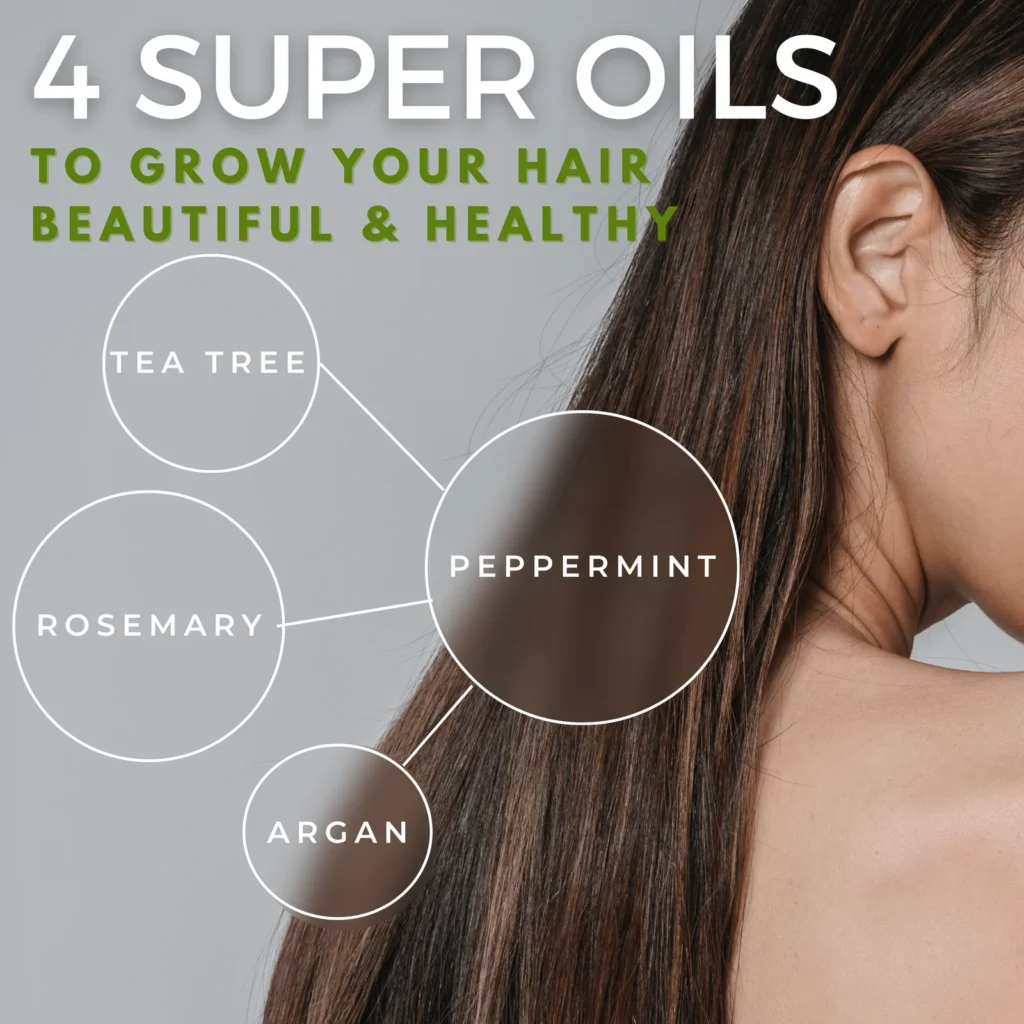In recent years, the beauty and personal care industry has witnessed a transformative shift towards natural and organic products. Among these, herbal shampoos have emerged as a significant trend, capturing the attention of consumers and reshaping the haircare market. This surge in popularity is not a mere fad but a reflection of changing consumer preferences, greater awareness of the benefits of natural ingredients, and growing concerns about the long-term effects of synthetic chemicals. Here’s a closer look at why herbal shampoos are taking over the haircare industry.
1. Consumer Demand for Natural and Safe Products
Today’s consumers are more informed than ever about the potential dangers of synthetic ingredients commonly found in traditional shampoos, such as sulfates, parabens, and silicones. These chemicals, while effective in cleansing and conditioning hair, can cause scalp irritation, dryness, and even hair damage with prolonged use. In contrast, herbal shampoos are marketed as gentle, safe, and free from harsh chemicals.
The appeal of natural ingredients like aloe vera, neem, hibiscus, and tea tree oil lies in their centuries-old reputation for nourishing the scalp and promoting healthy hair growth. As consumers increasingly seek transparency and simplicity in product formulations, herbal shampoos align perfectly with this demand.
2. Eco-Friendly and Sustainable Appeal
Sustainability is a driving force behind many modern purchasing decisions. The environmental impact of synthetic products, from production processes to packaging waste, has led to growing interest in eco-friendly alternatives. Herbal shampoos often emphasize biodegradable formulations and sustainable sourcing of ingredients, reducing their ecological footprint.
Additionally, many herbal shampoo brands use recyclable or minimal packaging, further appealing to environmentally conscious consumers. This commitment to sustainability resonates particularly with millennials and Gen Z, who are at the forefront of advocating for greener lifestyles.
3. Holistic Approach to Haircare
The herbal shampoo market benefits from the broader trend of holistic wellness, which views health as a combination of physical, mental, and environmental well-being. Herbal shampoos often incorporate traditional remedies from Ayurveda, Traditional Chinese Medicine (TCM), and other natural healing systems. These shampoos are designed not just to cleanse hair but also to restore balance to the scalp and promote overall hair health.
For instance, ingredients like bhringraj and amla, staples in Ayurvedic haircare, are known for their ability to strengthen hair roots, prevent premature graying, and enhance hair texture. The inclusion of such time-tested remedies gives herbal shampoos a unique advantage over conventional products.
4. Rise of DIY and Ingredient-Conscious Trends
The growing DIY culture has inspired consumers to experiment with homemade haircare solutions, leading them to appreciate the efficacy of herbal ingredients. As a result, they seek commercial products that mimic these natural remedies. Labels listing familiar ingredients such as coconut oil, fenugreek, or lavender are perceived as trustworthy and effective.
Moreover, many herbal shampoo brands adopt minimalist packaging and clearly label their products to highlight key active ingredients. This transparency fosters trust and enables consumers to make informed decisions.
In recent years, the beauty and personal care industry has witnessed a transformative shift towards natural and organic products. Among these, herbal shampoos have emerged as a significant trend, capturing the attention of consumers and reshaping the haircare market. This surge in popularity is not a mere fad but a reflection of changing consumer preferences, greater awareness of the benefits of natural ingredients, and growing concerns about the long-term effects of synthetic chemicals. Here’s a closer look at why herbal shampoos are taking over the haircare industry.
1. Consumer Demand for Natural and Safe Products
Today’s consumers are more informed than ever about the potential dangers of synthetic ingredients commonly found in traditional shampoos, such as sulfates, parabens, and silicones. These chemicals, while effective in cleansing and conditioning hair, can cause scalp irritation, dryness, and even hair damage with prolonged use. In contrast, herbal shampoos are marketed as gentle, safe, and free from harsh chemicals.
The appeal of natural ingredients like aloe vera, neem, hibiscus, and tea tree oil lies in their centuries-old reputation for nourishing the scalp and promoting healthy hair growth. As consumers increasingly seek transparency and simplicity in product formulations, herbal shampoos align perfectly with this demand.
2. Eco-Friendly and Sustainable Appeal
Sustainability is a driving force behind many modern purchasing decisions. The environmental impact of synthetic products, from production processes to packaging waste, has led to growing interest in eco-friendly alternatives. Herbal shampoos often emphasize biodegradable formulations and sustainable sourcing of ingredients, reducing their ecological footprint.
Additionally, many herbal shampoo brands use recyclable or minimal packaging, further appealing to environmentally conscious consumers. This commitment to sustainability resonates particularly with millennials and Gen Z, who are at the forefront of advocating for greener lifestyles.
3. Holistic Approach to Haircare
The herbal shampoo market benefits from the broader trend of holistic wellness, which views health as a combination of physical, mental, and environmental well-being. Herbal shampoos often incorporate traditional remedies from Ayurveda, Traditional Chinese Medicine (TCM), and other natural healing systems. These shampoos are designed not just to cleanse hair but also to restore balance to the scalp and promote overall hair health.
For instance, ingredients like bhringraj and amla, staples in Ayurvedic haircare, are known for their ability to strengthen hair roots, prevent premature graying, and enhance hair texture. The inclusion of such time-tested remedies gives herbal shampoos a unique advantage over conventional products.
4. Rise of DIY and Ingredient-Conscious Trends
The growing DIY culture has inspired consumers to experiment with homemade haircare solutions, leading them to appreciate the efficacy of herbal ingredients. As a result, they seek commercial products that mimic these natural remedies. Labels listing familiar ingredients such as coconut oil, fenugreek, or lavender are perceived as trustworthy and effective.
Moreover, many herbal shampoo brands adopt minimalist packaging and clearly label their products to highlight key active ingredients. This transparency fosters trust and enables consumers to make informed decisions.
5. Marketing and Celebrity Endorsements
The rise of herbal shampoos has been significantly fueled by clever marketing campaigns that emphasize their natural benefits and lack of harmful chemicals. These campaigns often highlight the soothing, aromatic, and therapeutic properties of the shampoos, appealing to consumers seeking a spa-like experience at home.
Celebrity endorsements and influencer marketing have also played a critical role in popularizing herbal shampoos. Many celebrities advocate for natural beauty products, lending credibility to the claims of these shampoos and inspiring fans to adopt similar choices.
6. Customization and Diversity in Products
Another reason for the success of herbal shampoos is their versatility and ability to cater to diverse hair types and concerns. Unlike traditional shampoos that often adopt a one-size-fits-all approach, herbal shampoos offer tailored solutions. For instance:
- Dry Hair: Herbal shampoos with aloe vera and coconut oil provide deep hydration and nourishment.
- Dandruff: Ingredients like tea tree oil and neem effectively combat dandruff and soothe the scalp.
- Hair Loss: Formulas featuring ginseng, bhringraj, or hibiscus promote hair growth and strengthen follicles.
This customization enables consumers to find products that specifically address their needs, making herbal shampoos more appealing than generic alternatives.
7. Improved Product Quality and Accessibility
Advancements in technology and research have enabled herbal shampoo manufacturers to create more effective formulations without compromising on natural ingredients. Many of these shampoos now offer a luxurious lather, pleasant fragrance, and consistent results, matching or even surpassing the performance of traditional shampoos.
Moreover, herbal shampoos are no longer confined to niche health stores. They are widely available in supermarkets, online platforms, and even high-end beauty retailers, making them accessible to a broader audience.
8. Response to Scalp and Hair Health Issues
As hair and scalp issues become more prevalent due to lifestyle changes, pollution, and stress, consumers are prioritizing products that address these concerns holistically. Herbal shampoos, with their anti-inflammatory, antibacterial, and soothing properties, are ideal for treating common issues like itchy scalp, thinning hair, and split ends.
For example, products containing tea tree oil are highly effective in combating scalp infections, while shampoos with rosemary extract stimulate circulation to promote hair growth. This functionality-driven appeal makes herbal shampoos an attractive option for long-term hair health.
Conclusion
The growing popularity of herbal shampoos reflects a paradigm shift in the haircare industry, driven by an increasing preference for natural, sustainable, and effective solutions. As consumers become more ingredient-conscious and eco-aware, the demand for herbal shampoos is set to grow further. With their unique combination of tradition and modernity, these products are not just a trend but a lasting transformation in how we approach haircare.
By offering safer, eco-friendly, and holistic alternatives, herbal shampoos have successfully positioned themselves as the future of haircare, appealing to both the practical and emotional needs of today’s consumers. Their rise signifies more than just a market trend—it is a testament to the evolving values and priorities of a global audience seeking harmony between personal well-being and environmental responsibility.
5. Marketing and Celebrity Endorsements
The rise of herbal shampoos has been significantly fueled by clever marketing campaigns that emphasize their natural benefits and lack of harmful chemicals. These campaigns often highlight the soothing, aromatic, and therapeutic properties of the shampoos, appealing to consumers seeking a spa-like experience at home.
Celebrity endorsements and influencer marketing have also played a critical role in popularizing herbal shampoos. Many celebrities advocate for natural beauty products, lending credibility to the claims of these shampoos and inspiring fans to adopt similar choices.
6. Customization and Diversity in Products
Another reason for the success of herbal shampoos is their versatility and ability to cater to diverse hair types and concerns. Unlike traditional shampoos that often adopt a one-size-fits-all approach, herbal shampoos offer tailored solutions. For instance:
- Dry Hair: Herbal shampoos with aloe vera and coconut oil provide deep hydration and nourishment.
- Dandruff: Ingredients like tea tree oil and neem effectively combat dandruff and soothe the scalp.
- Hair Loss: Formulas featuring ginseng, bhringraj, or hibiscus promote hair growth and strengthen follicles.
This customization enables consumers to find products that specifically address their needs, making herbal shampoos more appealing than generic alternatives.
7. Improved Product Quality and Accessibility
Advancements in technology and research have enabled herbal shampoo manufacturers to create more effective formulations without compromising on natural ingredients. Many of these shampoos now offer a luxurious lather, pleasant fragrance, and consistent results, matching or even surpassing the performance of traditional shampoos.
Moreover, herbal shampoos are no longer confined to niche health stores. They are widely available in supermarkets, online platforms, and even high-end beauty retailers, making them accessible to a broader audience.
8. Response to Scalp and Hair Health Issues
As hair and scalp issues become more prevalent due to lifestyle changes, pollution, and stress, consumers are prioritizing products that address these concerns holistically. Herbal shampoos, with their anti-inflammatory, antibacterial, and soothing properties, are ideal for treating common issues like itchy scalp, thinning hair, and split ends.
For example, products containing tea tree oil are highly effective in combating scalp infections, while shampoos with rosemary extract stimulate circulation to promote hair growth. This functionality-driven appeal makes herbal shampoos an attractive option for long-term hair health.
Conclusion
The growing popularity of herbal shampoos reflects a paradigm shift in the haircare industry, driven by an increasing preference for natural, sustainable, and effective solutions. As consumers become more ingredient-conscious and eco-aware, the demand for herbal shampoos is set to grow further. With their unique combination of tradition and modernity, these products are not just a trend but a lasting transformation in how we approach haircare.
By offering safer, eco-friendly, and holistic alternatives, herbal shampoos have successfully positioned themselves as the future of haircare, appealing to both the practical and emotional needs of today’s consumers. Their rise signifies more than just a market trend—it is a testament to the evolving values and priorities of a global audience seeking harmony between personal well-being and environmental responsibility.

